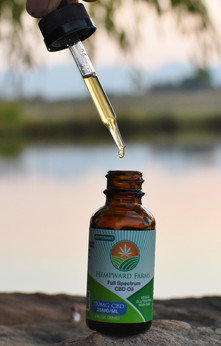5 reasons CBD may not be working for you
- Micheline Ward

- Nov 2, 2020
- 3 min read
Updated: Jan 9
Have you ever wondered, "Why isn't CBD effective for me?"
If you've tried CBD and haven't experienced any effects, you're not alone.
There are valid reasons why CBD might not be effective for you. It has only recently gained acceptance for many following the Farm Bill of 2018, and as a nation and society, we are still working to define and regulate the market for accountability, as well as conducting studies on CBD for both human and animal use. This means there is still uncertainty about which businesses are reputable to purchase from, what the most effective dosage is, and how to use it. All these factors can influence the effectiveness of CBD.
.
But don't give up on CBD just yet! First consider these reasons it might not be effective for you and why it could be beneficial to try it again.
1- The CBD is not from a trustworthy source
CBD remains a relatively new supplement on the market. Since the industry is not currently regulated by the FDA or USDA, companies are not required to offer high-quality products. Many of these CBD companies make inflated claims about their products' potency, leading consumers to purchase low-quality items that fail to deliver the anticipated benefits of CBD.
To find a good product, choose a company that is honest and open about their practices. Buy your CBD from companies that use third-party testing to check quality and dosage. "Third-party lab testing" means sending the product to an independent lab to confirm the CBD strength and ensure it is free of harmful substances like mycotoxins, solvents, heavy metals, and pesticides. At Hempward Farms, we share all our lab results for every product. You don’t need to ask or search our website; you can find them here, or look in the menu at the bottom of our site.
2- You aren't taking the correct dosage
Finding the right CBD dose can be confusing and takes time. Each person or animal has unique needs based on:
Reason for taking CBD
Body weight
Individual endocannabinoid system
To start, our best advice is to:
Start low
Go slow
CBD is not toxic, so there’s no risk of overdose. However, cannabinoids can have “biphasic” effects, meaning that higher doses don't always lead to better results and may even have the opposite effect. It's important to take your time to find the dose that works best for you.
3- You might not be using the appropriate form of CBD
CBD provides various effects on our bodies, leading to multiple product options. Available products include CBD oil tinctures, creams, and topicals. Your choice should align with your goals: for immediate relief, use a topical; for long-term benefits, opt for an oil tincture or softgel.
To ensure their effectiveness, it's important to take oral supplements daily for thirty days, as inconsistent use might reduce their results.
4- You are not using a full-spectrum CBD
You may have noticed CBD isolates, broad-spectrum, and full-spectrum products on the market. So what's the difference?
Full spectrum products include all parts of the hemp plant, such as CBD, minor cannabinoids (CBG, CBN, CBC), and THC (<0.3%), along with terpenes, flavonoids, fatty acids, and enzymes. Broad spectrum products have the same components as full spectrum but exclude THC. CBD isolate is a refined product that contains only the CBD molecule and lacks other compounds from the hemp plant. While some may prefer CBD isolate to avoid THC and other cannabinoids, it does not provide the full synergistic benefits of the complete range of compounds.
Studies show that full spectrum products are most effective, due to the Entourage Effect. The Entourage Effect states the when all the cannabinoids (including CBD) and terpenes work together, the restorative benefit of the whole plant is greater than the sum of its parts. Full-spectrum hemp CBD is purely extracted and minimally refined to leave most of the hemp plant intact.
Consequently, you might not experience the complete effects of CBD if you're using a product that isolates the CBD molecule instead of one that includes both the CBD molecule and the natural cannabinoids and terpenes. This is why Hempward Farms exclusively provides Full Spectrum CBD products.
5- You might have unrealistic expectations
While I have faith in CBD, it isn't a universal remedy. There are limitations, and just like everything in life, people are unique and have individual experiences. Each person processes CBD differently, which can be attributed to variations in metabolic rates, biochemistry, and genetic composition. Additionally, everyone has their own needs and lifestyles, so although many individuals see great results with CBD, we must remain realistic. This is why I advise customers to genuinely try it by consistently using it daily for the first 30 days.

CBD is an emerging product category, and considerable research is still needed to verify its effectiveness in treating various conditions. I think we've only glimpsed the potential of what CBD can achieve.












Comments